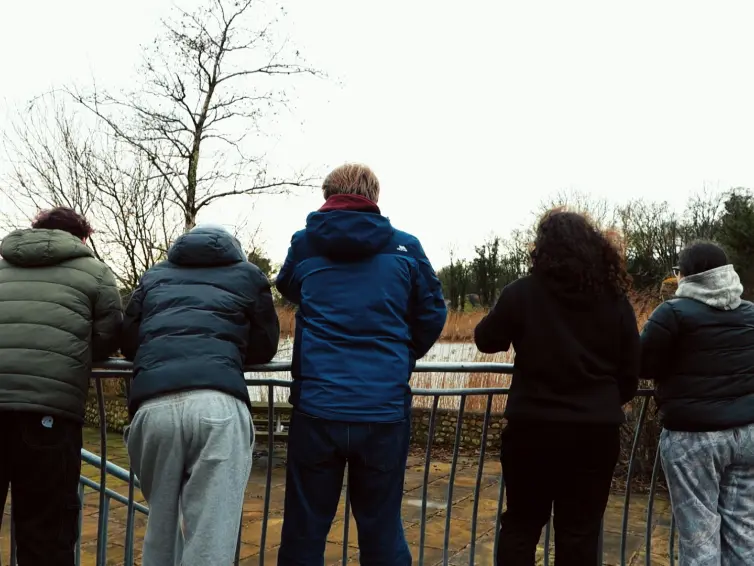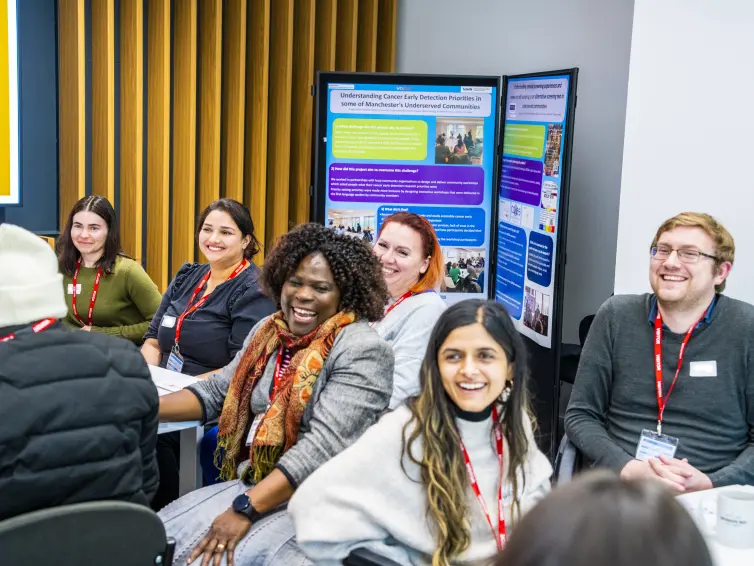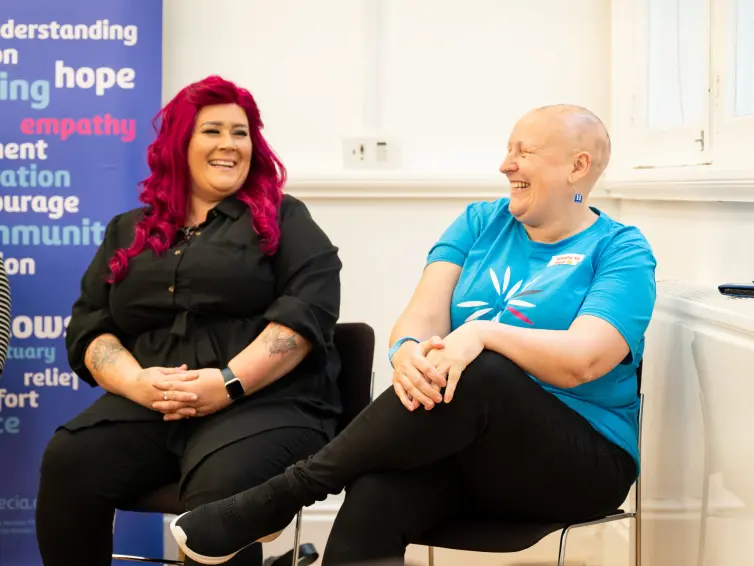Cancer & Us: exploring cancer health inequalities and data
Working with LGBTQIA+ people to hear what matters to them about cancer research
Cancer affects 1 in 2 people in Greater Manchester, but it’s a topic that can be hard to talk about. As part of Cancer & Us: Community Conversations we partnered with the LGBT Foundation and cancer researchers to have open and honest conversations about cancer and research.
Members of the LGTBQIA+ community experience multiple health inequalities throughout the course of their lives. From access to care, to mental health and cancer risk.
This was at the heart of our effort to create a project bringing people from the LGBTQIA+ community and researchers together to share experiences, questions and understand more about the health research issues that matter to them. We started by talking to the community.
It’s important that we have our own voices listened to and that our experiences are heard and shared.
Participant
What matters to people?
In our first session we explored people’s views and experiences of cancer research with a mix of people who had personal experience of the condition with people without. We explored what they associated with cancer research and topics that are important to them. They told us:
People talked about barriers they’d experienced trying to access screening or cancer care and their fears of being misgendered*, treated differently or unfairly in cancer research and healthcare.
They wanted to know more about which cancers are more likely to affect the community, the inequalities experienced by LGBTQIA+ people and what can cause cancer.
People wanted to create something to share with others to start conversations and raise awareness of their experiences.
They also wanted to come together with others with similar lived experiences because they felt they didn’t have other spaces to do that.
*Referring to someone using a word (such as pronoun or form of address) that does not reflect their gender identity.
But how can we give answers, without data?
There is a lack of comprehensive research on the rates at which LGBT people experience ill health and disease, making it sometimes difficult to draw comparisons to the general populations.
LGBT Foundation, Hidden Figures Report, 2020
Cancer research means hope, prevention, cure.
Participant
What did we do?
With the LGBT Foundation we co-designed a series of creative workshops that brought together people from the community, a local artist and cancer researcher Jennifer Davies-Oliveira. We explored:
The problem surrounding the lack of data
What we know about cancer health inequalities affecting the LGBTQIA+ community
What having a say in research meant to them
What people talked about
The key issue for people was their experiences of inequalities in cancer screening or cancer care, people wanted research to address this first.
People shared their stories and asked why the data isn’t there. They talked about what it feels to see themselves represented and how important it was for them to talk about cancer in the community. The conversations were challenging, personal and hopeful.
See the zine to find out more about the people’s experiences and their hopes for more research, representation and understanding of experiences of the LGBTQIA+ community.
If you’re interested in having a say in cancer research and make a difference to people in the future, you can join the Get Vocal on Cancer Network.
Find out more about cancer research by watching more Cancer & Us: Community Conversation films.


